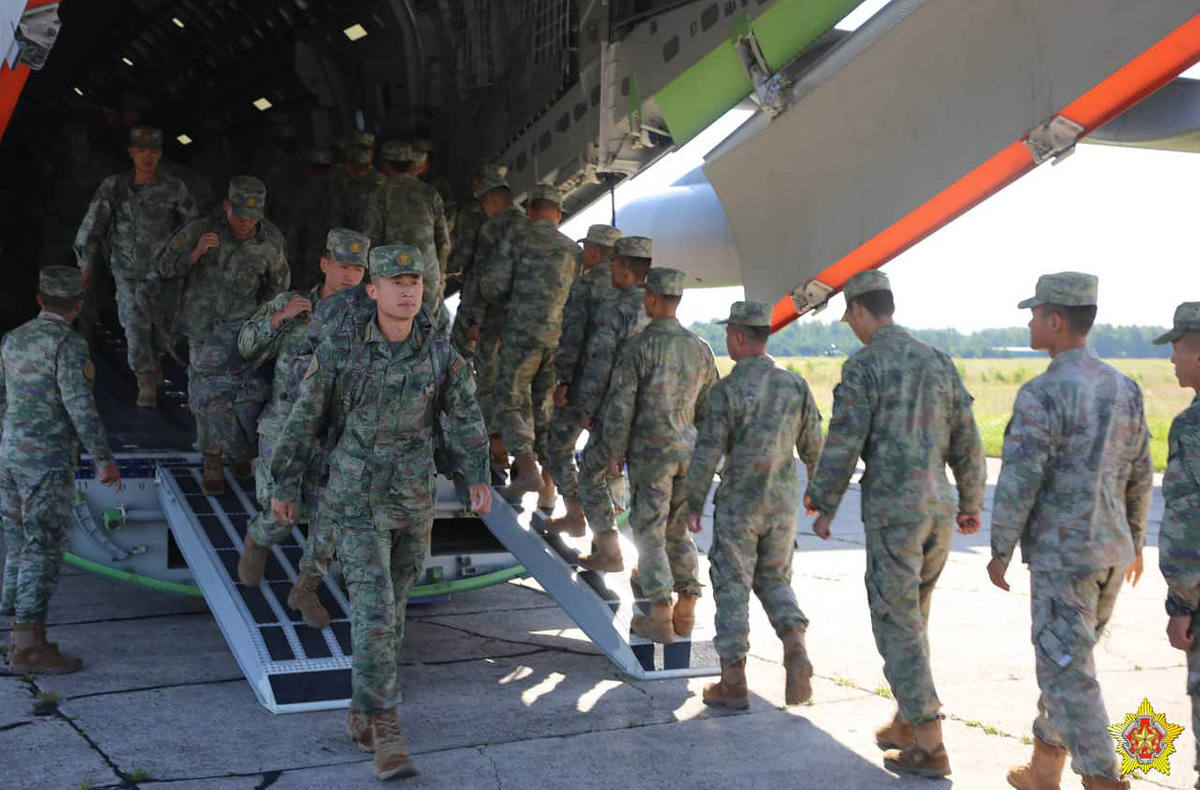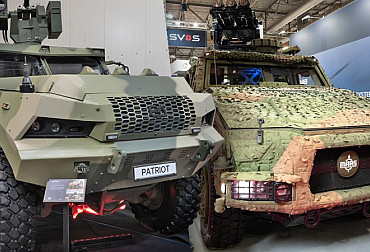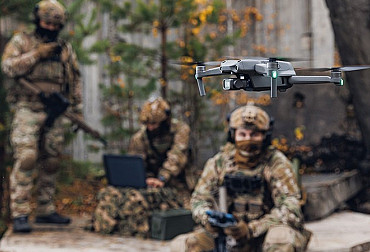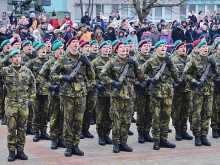China is not as far away as we thought. Are we in danger of a clash of powers?
Until now, we could not imagine that the Chinese army could train near NATO's border, which is probably related to another event: the entry of Belarus into the SCO. It is thus clear that, in addition to China's economic expansion, the country's interests will also be pursued through the Chinese army and its presence in various parts of the world. We are currently witnessing the strengthening of power groups on a global scale. The growing contradictions between powers are leading to an escalation of tensions, where, in particular, the ongoing conflict in Ukraine may escalate further or constitute a serious obstacle to the establishment of peaceful coexistence and the achievement of sustainable development.

Entry of Belarus into the SCO
On 4 July 2024, Belarus became a member of the Shanghai Cooperation Organisation (SCO). In addition to the most recent member Belarus, the other members of the SCO are China, Russia, Kazakhstan, Tajikistan, Kyrgyzstan, Uzbekistan, India, Iran, and Pakistan. Even although the main objectives of the SCO are declared to include areas such as strengthening stability and security in the wider area, combating terrorism, separatism and extremism, combating drug trafficking, economic cooperation as well as partnerships in energy, scientific and cultural cooperation, an 11-day "anti-terrorism" exercise has already launched on 8 July near the Belarusian city of Brest on the border with Poland. In this context, Chinese soldiers arrived in Belarus at an air base near the town of Baranavichy on 7 July. It cannot be ruled out that the exercise is only the first step towards a more frequent or permanent presence of the Chinese army in the European region, and it is likely that China is showing the world its potential to influence geopolitical developments. These events are also likely to reinforce further US and EU demarcation against China. The increase in mutual sanctions and protectionist measures by domestic economies is thus expected to result in an escalation of the trade war between the US and the EU on one hand and China on the other.
NATO Summit
The exercise began just prior to the NATO Summit in Washington DC, July 9-11, 2024. The Summit heard warnings about the growing influence of China and its support for Russia in the conflict with Ukraine. The summit confirmed that allies want to continue to strengthen deterrence as well as increase assistance to Ukraine in the face of Russia's aggressive behavior. The rapprochement between Russia, China, the DPRK and Iran was also mentioned.
Creating new blocks and alliances
It is questionable how exactly to evaluate the above-mentioned initiative and cooperation between Belarus and China, but it would probably not have happened without coordination with Russia at all, which may welcome the China-Belarus cooperation as a hedge against the possible deployment of troops of some NATO countries on the territory of Ukraine. Nor can there be any doubt that Russia is attentive to Ukraine's bilateral agreements with some NATO member states.
Other possible developments
The aforementioned presence of Chinese troops at the Belarusian exercise may be a precursor to follow-up steps involving China's engagement on the borders of the emerging anti-Western bloc. Sooner or later, the establishment of military bases for Chinese troops cannot be ruled out, obviously in the name of maintaining peace and security. These developments can also be seen as a response to the strengthening of the eastern flank by NATO, and such steps will probably be presented as measures arising from fears of security threats or interference in the internal affairs of Belarus. Currently, NATO is planning to deploy 800,000 troops on its eastern flank, and on the Russian side, the involvement of North Korean troops cannot be ruled out. The question then is whether and to what extent the Russian leadership is prepared for potential or forthcoming actions by NATO or some of its members. In any case, at the last meeting of the SCO in Astana, at which Belarus also became a member, Russian President Vladimir Putin presented the SCO countries as the pillar of the new order and spoke of a new security architecture for Eurasia.
Conclusion
Future developments in Ukraine will show which side will be better thought out and prepared for its next steps or countermeasures, and will largely depend on resources and determination to continue the fight. Realistic observations on how the parties are making use of the time available to them can then guide further developments. Part of that limited time will likely include the US presidential election and the subsequent approach to further leadership or ending the conflict in Ukraine by the newly elected president.
However, it is not yet certain that peace will be established before the conflict escalates and possibly spreads. However, it is also possible that the eventual peace in Ukraine may be a "breathing space" before the next confrontation, unless the powers have the will to reach an agreement and create a new security architecture.





















